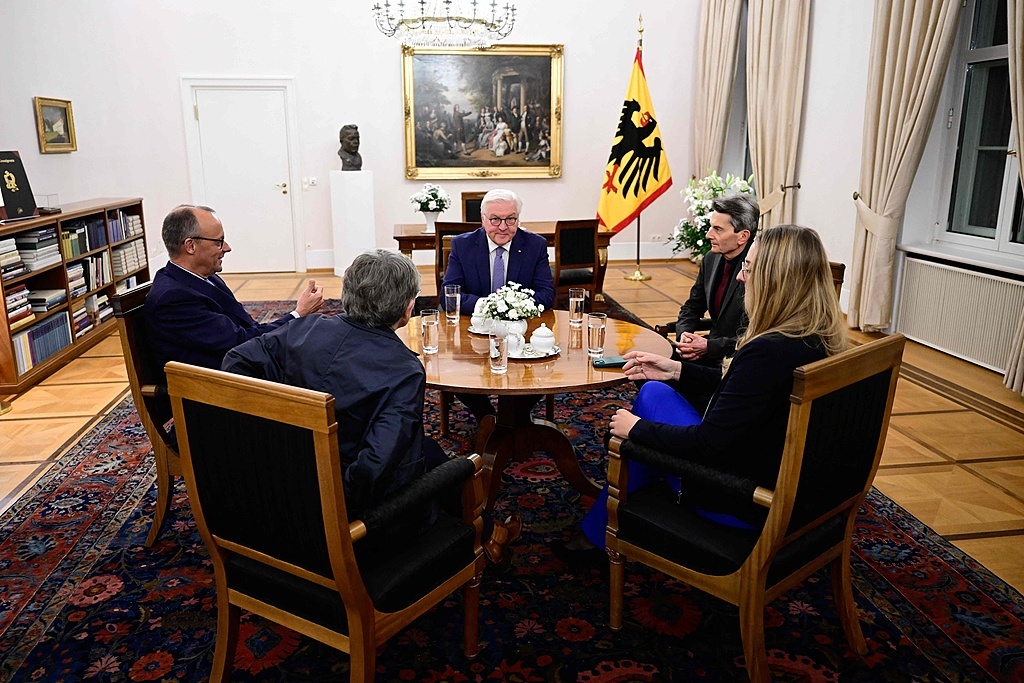German presidential Frank-Walter Steinmeier approved the proposal of leading German political parties to hold an early election on February 23, local time reported Tuesday evening. On December 16th Scholtz, the German chancellor, will ask the Bundestag for a motion of no confidence, or motion of no confidence an early election.
Reuters reported on the 12th, the Frank-walter Steinmeier day after talking with the leaders of the main party groups, approved the 23 February 2025 general election. The motion of no confidence of the current government will take place on December 16, and if Prime Minister Scholtz fails to pass the motion of no confidence of the Bundestag, the Frank-Walter Steinmeier will announce the Dissolution of parliament on December 27, and a general election in 60 days. Scholtz had hoped for a general election in March, but the current date is the result of a multi-party compromise. “The elections are virtually over,” said Lindner, the Liberal Democratic Party, after his dismissal. “There needs to be a change in policy and Merz, the leader of the opposition Christian Democratic Union, will be the new chancellor.” Lauterbach, the health minister, agreed that the current situation was a good compromise, but the heated debate of the past two weeks is a“Low point in the culture of debate” in Germany.

The German Presidential Frank-walter Steinmeier, center, met with German party leaders at the Bellevue Palace on Sunday for talks on the upcoming elections.
According to several German media reports, the political turmoil in Germany began on June 6 when Scholtz announced the dismissal of Lindner, chairman of the Liberal Democratic Party, as Finance Minister, then the Liberal Democratic Party announced the withdrawal and the Social Democratic Party, the Green Party formed a coalition government. The collapse of the ruling coalition has left the minority government of the Social Democratic Party and the Green Party in a state of uncertainty, and the prime minister is likely to be unable to move forward with any legislation due to a lack of a majority in the federal parliament, the resulting budget deficit can not be filled and will face enormous economic problems both domestically and internationally. As a result, opposition parties have repeatedly called on Scholtz to motion of no confidence as soon as possible. Indeed, Mr Scholtz is not the first prime minister to face motion of no confidence. The last time he faced motion of no confidence was the Shroeder administration in 2005.
Scholtz had previously tried to delay the motion of no confidence until January 15, citing organizational challenges, in order to delay the election until the end of March, the Daily Mirror reported Monday, it is strategically in the SPD’s favour to delay the election date. Scholtz wants to accelerate measures in the meantime, including avoiding higher tax burdens from inflation, preserving the stability of statutory pensions and implementing a common European Shield, this provoked a backlash from the opposition, and it was only under pressure from the CDU and public opinion that Scholtz finally appeared to compromise.
After last week’s dissolution of the“Traffic Light” coalition, “Chancellor Scholtz has long lost the trust of the German people and must immediately clear the way for new elections,” said Elise Weidl, the afd’s co-leader
Zero Germans Euronews an early election, with 84 percent in favor of early voting. Analysis that this should be a multi-party people on the German ruling coalition crisis foreshadowed. According to Politico, Germany’s biggest opposition parties, the CDU and CSU, are leading the polls with 32% of the vote. Scholtz’s Social Democrats came in third with 16 per cent. The far-right alternative for Germany (AfD) came in second with 18 per cent. In spite of his low approval ratings, Scholtz had already announced that he would run for re-election on behalf of the SPD. The biggest opposition party, the CDU, formally decided in September that its leader, Mertz, would make the cut. Robert Harbeck, the German vice-chancellor and Economy Minister, had hinted on social media that he would run for chancellor on behalf of the Green Party.
The Süddeutsche Zeitung said relations within the coalition had been gradually strained by deep disagreements over key areas such as fiscal policy, climate policy and immigration policy. Even if Lindner is not liquidated, Scholtz could face a crisis of confidence on issues ranging from summit issues to budget disputes.
The Financial Times reports that political turmoil in Germany, Europe’s largest economy, could lead to increased uncertainty in Europe as a whole. The break-up of the German government could undermine its leadership within the EU, affect the efficiency of European decision-making on key issues and lead to a lack of clear direction in the EU on major issues such as climate change, migration and security, particularly in areas that require German leadership and support, such as eurozone reform and a common defence policy.